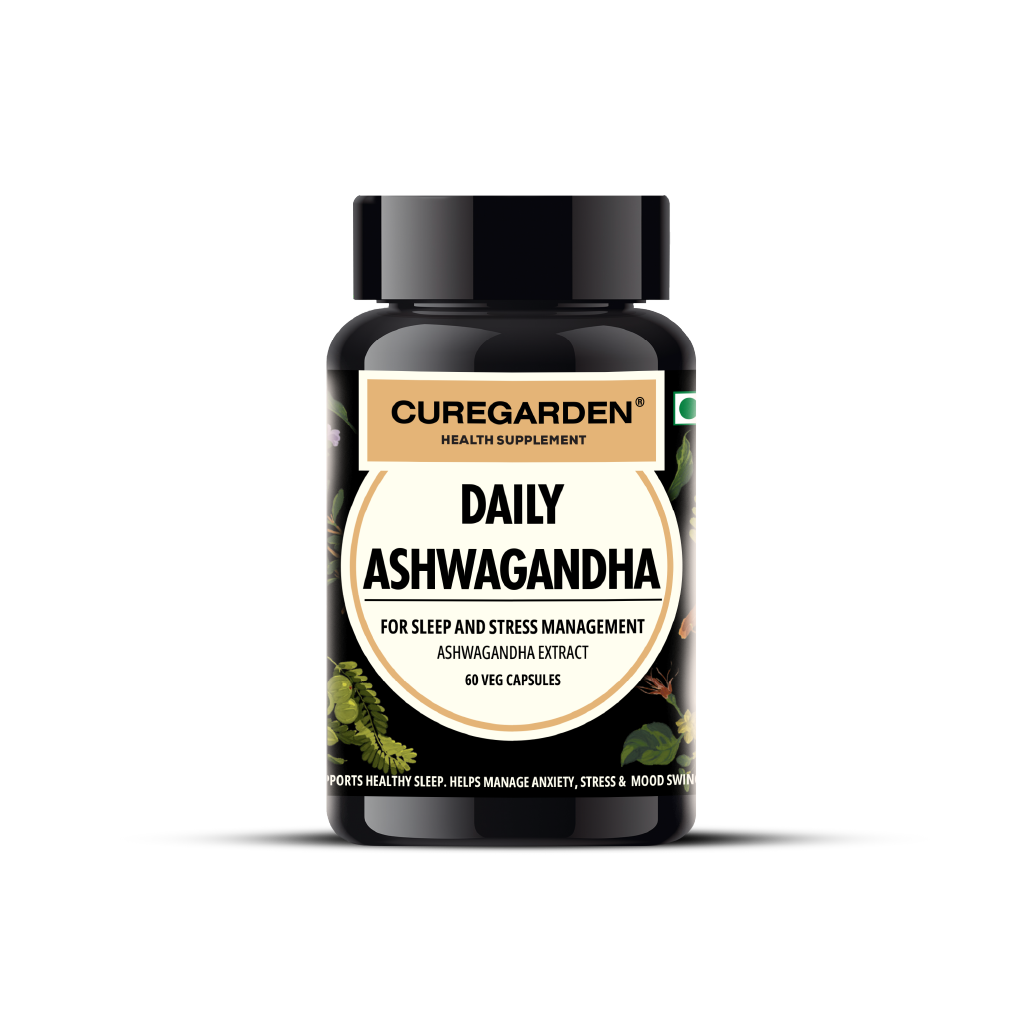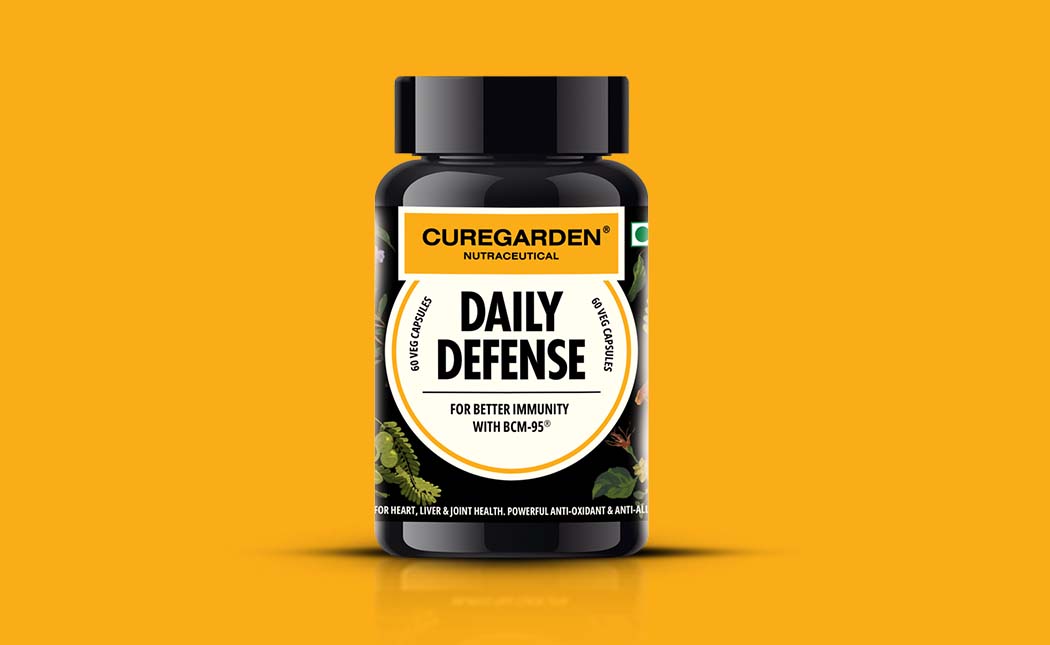Essential Takeaways
Ashwagandha (Withania somnifera) is a revered Ayurvedic herb known as an adaptogen (stress reliever). Many people take Ashwagandha tablets or capsules to help support mood and relaxation. In recent years, research on Ashwagandha has surged. By 2025, over 1,900 studies on this herb had been published. These studies highlight its potential to reduce stress, improve sleep, and boost immunity. For example, a 2012 trial found that taking 300 mg twice daily cut stress by 44% and cortisol by 28%. Participants also slept better and had clearer minds during the study. This evidence backs Ashwagandha’s reputation for helping the body adapt to stress.
Benefits of Ashwagandha Tablets
Ashwagandha tablets bring key health benefits. Here are the main advantages:
Stress and Anxiety Relief: Ashwagandha is a potent adaptogen. Studies show it can significantly reduce perceived stress and anxiety by lowering cortisol. Many users report feeling calmer after regular use.
Better Sleep: Clinical trials have found Ashwagandha improves sleep quality. A recent review noted that Ashwagandha extract significantly helped adults with insomnia sleep more soundly.
Enhanced Mood & Focus: By balancing stress hormones, Ashwagandha may boost mental clarity and mood. Research shows users often experience improved alertness and less fatigue when taking Ashwagandha daily.
Immune and Overall Health: Ashwagandha contains antioxidants and anti-inflammatory compounds. Early studies suggest it may support immune function and general well-being.
These benefits come from Ashwagandha’s active compounds (withanolides) working to regulate the body’s stress response.
Dosage and How to Take Ashwagandha Tablets
How much Ashwagandha should you take? Dosage can vary, but research gives guidelines:
Standard Dose: Most studies use about 300–600 mg of Ashwagandha extract per day. This often means 1–2 capsules daily (many tablets contain 300 mg each). One study found 300 mg twice a day (600 mg total) for 60 days effectively cut stress and cortisol levels. Another review noted benefits were stronger with 500–600 mg/day.
Product Example: CureGarden’s Daily Ashwagandha tablets recommend one capsule (about 500 mg) taken 1–2 hours before dinner. Taking it with a meal can reduce any stomach upset.
Consistent Routine: For best results, take Ashwagandha at the same time each day. Many people use it in the evening, since it can promote relaxation and better sleep. Always follow the product label and do not exceed the recommended dose.
Consult your doctor for personal advice. If you have health conditions or take medication, a professional can help set a safe dose for you.
How to Choose the Best Ashwagandha Tablets in India
Not all Ashwagandha supplements are created equal. To pick the best Ashwagandha tablets, consider:
Standardized Extract: Look for tablets that specify active withanolide content. Quality products use standardized extracts (often 5–10% withanolides). CureGarden, for example, uses Shoden® – a patented, high-potency Ashwagandha extract. A higher withanolide content usually means better results per capsule.
Purity and Quality: Choose brands with high manufacturing standards (GMP) and third-party testing. Check that the label is transparent about ingredients. Avoid tablets with fillers or undisclosed additives.
Brand Reputation: Read reviews and see if the company provides clear information. CureGarden notes that its tablets use a special “Bioactive Ingredient Protection System” for better absorption. Details like these (and positive user feedback) can signal a reliable product.
Certifications: In India, look for FSSAI approval or organic certifications. These add confidence, but always read the fine print and ingredients list.
Tip: Compare the cost per mg of Ashwagandha. Larger bottle sizes or subscription plans often lower the price if you plan to use it regularly.
Example: CureGarden’s Daily Ashwagandha Tablets
As an example, CureGarden’s Daily Ashwagandha (60 capsules) is a popular product in India. It contains a pure Ashwagandha root extract standardized for withanolides, and the label suggests one capsule per day. The company claims it helps with stress, sleep, and energy. For instance, one customer review says the tablets “helped me sleep well at night” and felt “completely safe”.
Safety and Precautions
Ashwagandha tablets are generally safe for most healthy adults when used short-term. Common side effects are usually mild (such as upset stomach or drowsiness). However, keep these precautions in mind:
Pregnancy & Breastfeeding: Experts advise pregnant or nursing women to avoid Ashwagandha, as its effects during pregnancy are not fully known.
Medical Conditions: If you have thyroid problems, hormone-sensitive conditions, or liver issues, talk to a doctor first. Ashwagandha can affect thyroid hormones and isn’t recommended for some people (for example, those with prostate cancer).
Medication Interactions: Ashwagandha may interact with certain drugs (like thyroid, blood pressure, or blood sugar medicines and sedatives). Always tell your doctor about any supplements you take.
Usage Duration: Most studies cover 6–12 weeks of use. Long-term safety isn’t established. Continue the suggested period and consider taking breaks.
If you experience severe symptoms (such as jaundice, severe nausea, or extreme fatigue), stop use and seek medical advice.
In summary, Ashwagandha tablets offer a convenient, research-backed way to use this time-tested herb. Choose a high-quality product and follow dosage instructions to safely enjoy its benefits for stress relief, sleep, and well-being.
Frequently Asked Questions
What are the main benefits of taking ashwagandha tablets?
Ashwagandha supports stress balance, energy levels, sleep quality, cognitive function, stamina, hormone balance and overall daily wellness. It helps the body adapt to physical and emotional stress and keeps you calm and focused.
How long does ashwagandha take to work?
Most people notice better sleep, calmness and reduced stress within two to four weeks. Benefits like strength, stamina and hormone balance may take six to eight weeks of consistent use.
How much ashwagandha should I take per day?
Most adults benefit from 300 to 600 mg of high quality ashwagandha extract per day. Standardized extracts with higher bioactives work better at lower doses. Always follow the dosage mentioned on the product label.
Can I take ashwagandha every day?
Yes. Ashwagandha works best when you take it daily. It supports long term stress balance, sleep quality and cognitive function when used consistently.
Is ashwagandha safe for long term use?
Ashwagandha is considered safe for long term use when you take a clean, standardized, clinically tested extract. Avoid low quality powders that may contain impurities.
Who should avoid ashwagandha?
Pregnant or breastfeeding women, people with thyroid disorders, and those taking medication for blood pressure or autoimmune conditions should speak to a healthcare expert before using ashwagandha.
Can I take ashwagandha with other supplements?
Yes. Ashwagandha pairs well with magnesium, omega 3, vitamin D, probiotics and multivitamins. It supports stress balance and makes other wellness routines more effective.
Does ashwagandha help with sleep?
Yes. Ashwagandha calms the nervous system, reduces cortisol and supports deeper and more restful sleep without causing drowsiness.
Does ashwagandha increase strength and stamina?
Ashwagandha supports muscle performance, endurance and recovery. Athletes use it to manage stress, improve oxygen use and support lean muscle growth.
Which form of ashwagandha is best tablets, capsules, powder or gummies?
Tablets and capsules offer higher potency and better consistency. Powders work well but taste strong and may vary in concentration. Gummies usually contain lower active levels.
What should I look for when choosing the best ashwagandha tablets?
Choose standardized extracts, bioactive rich formulas, clean sourcing, scientific testing and brands that mention withanolide percentage. Avoid generic powders with no potency data.
Can I take ashwagandha for anxiety and stress?
Yes. Ashwagandha is one of the most researched adaptogens for stress and anxiety support. It lowers cortisol and promotes calm energy.
Can ashwagandha help with hormonal balance?
Ashwagandha supports thyroid function, reproductive health and natural hormone balance in both men and women. It helps the body manage stress, which plays a major role in hormone imbalance.
Can I take ashwagandha on an empty stomach?
It is safe but may cause mild discomfort for some people. Taking it after a meal improves absorption and comfort.
Does ashwagandha cause weight gain?
No. Ashwagandha does not cause weight gain. It helps manage stress, improves sleep and supports balanced metabolism which may help some people lose stubborn weight.










